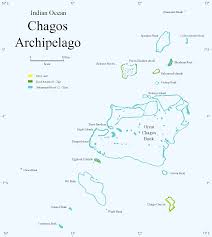
Introduction
The Chagos Islands, a remote archipelago in the Indian Ocean, have become a focal point for international legal disputes and geopolitical interests. Their significance extends beyond stunning landscapes and biodiverse ecosystems; the islands house critical military installations and have a complex colonial history that continues to affect diplomatic relations. The ongoing disputes involving the United Kingdom, Mauritius, and the United States have drawn worldwide attention, making the status of the Chagos Islands particularly relevant today.
Historical Context
The Chagos Islands were once inhabited by the Chagossian people until the UK government forcibly removed them between 1967 and 1973 to establish the Diego Garcia military base, which is strategically important to the British and American military operations in the Indian Ocean region. The base serves as a vital logistical hub and plays a crucial role in the US’s global military strategy. This removal has led to ongoing legal battles over the rights of the displaced Chagossians, who seek recognition and compensation for their loss.
Current Developments
The International Court of Justice (ICJ) ruled in 2019 that the UK’s administration of the Chagos Islands is illegal, affirming that the islands should be returned to Mauritius, which claims sovereignty over them. This ruling has been largely ignored by the UK government, which continues to administer the islands as a British Overseas Territory. In 2021, the UK reasserted its claim by announcing plans to establish a new marine protected area around the islands, further complicating the issue as critics argue that this move aims to prevent the return of the Chagossian people.
Geopolitical Implications
The strategic importance of the Chagos Islands cannot be understated, especially as tensions rise globally. Both China and Russia are increasing their presence in the Indian Ocean, prompting Western nations to reaffirm their military commitments in the region. The ongoing use of Diego Garcia for military operations has implications for international stability, counterterrorism efforts, and geopolitical power dynamics. The legal status of the islands and the handling of the Chagossian people’s rights continue to influence diplomatic relations globally.
Conclusion
The Chagos Islands remain at the intersection of colonial legacy, human rights, and international diplomacy. As global powers navigate the complex landscape of the Indian Ocean, the fate of the Chagossians hangs in the balance. The outcome of ongoing legal and diplomatic efforts will have long-lasting implications for the islanders and the strategic landscape of the region. Moving forward, it is crucial for the involved parties to seek a resolution that upholds the rights of the Chagossian community while addressing the geopolitical interests at stake.
You may also like

The Significance of the West in Today’s World

Exploring East Grinstead: History and Attractions
